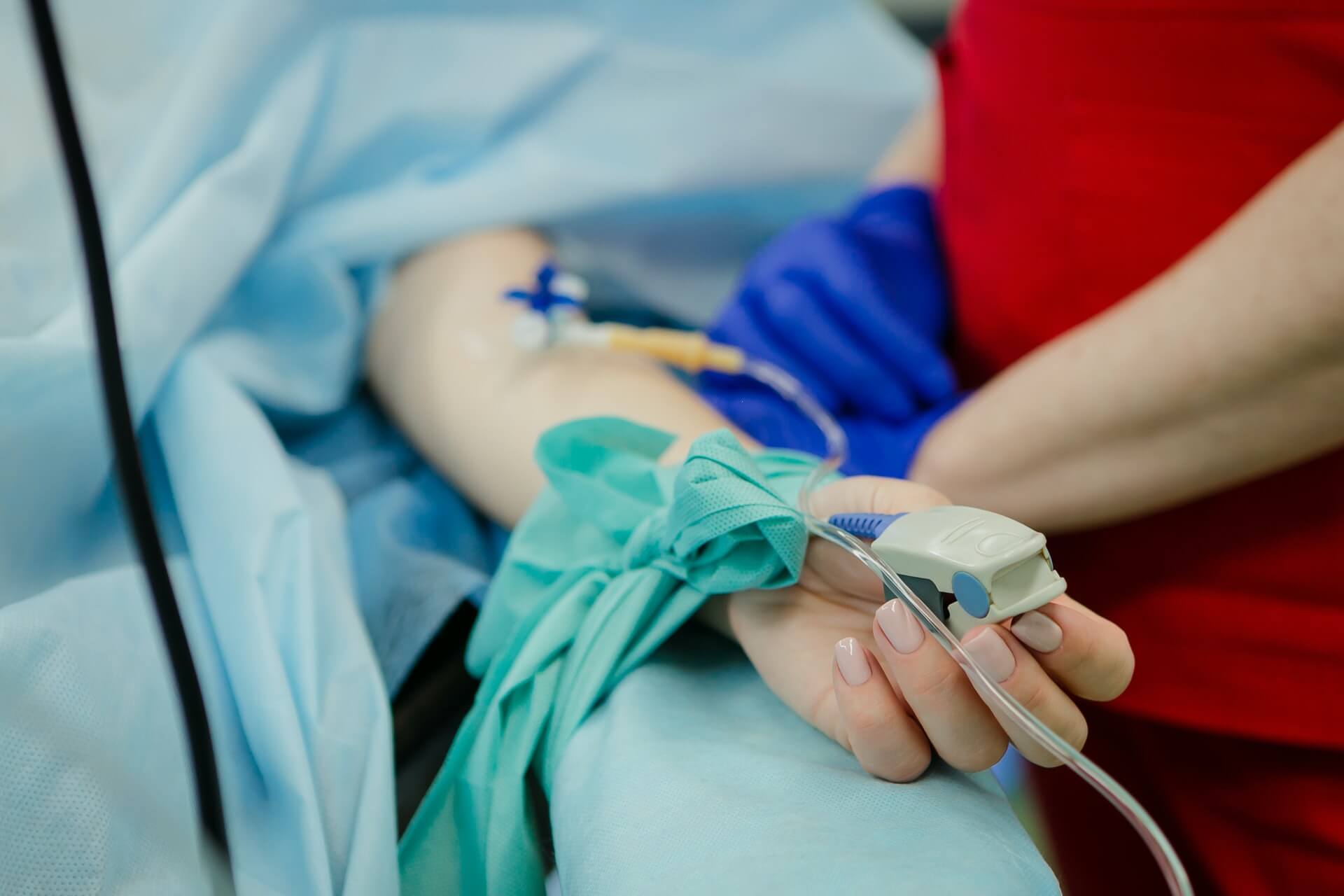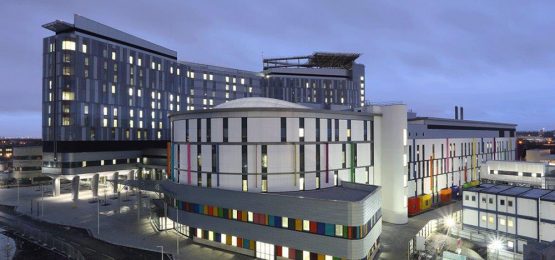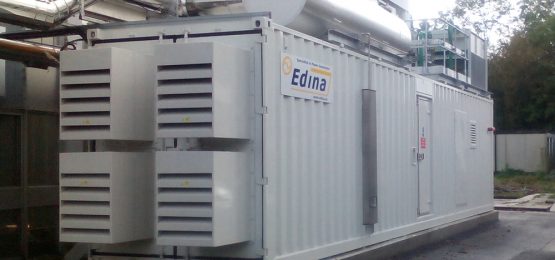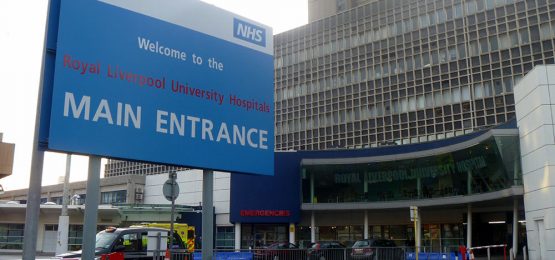
Hospitals and other buildings in the healthcare estate use significant amounts of heat and electricity. NHS organisations in England alone reported using more than 11.7 billion kWh of energy at a cost exceeding £790 million in 2021/22 (a 21.8% increase from 2020/21).
Healthcare systems are also a key source of greenhouse gas emissions around the globe, with the health and care system in England responsible for an estimated 4% of the country’s carbon footprint.
Combined Heat and Power (CHP) generation represents an ideal solution for hospitals and other healthcare providers that have a high and consistent heat demand.
At a time when budgets are stretched and public bodies are under pressure to reduce their environmental impact, CHP is the miracle prescription to minimise costs and emissions.
On-site gas and diesel power generation also provides a resilient standby power supply, independent from the grid, to provide critical immunity against the increasing risk of supply failures.

Cost savings on power, heating and cooling
Reduced carbon emissions compared to conventional power production and onsite boilers
Payback within 2-5 years
Greater operational resilience and security of power supply
High electrical and thermal efficiency of up to 90%
Cost savings can be reinvested and deployed in front line services
Fuel flexibility - renewable, low carbon, and hydrogen ready
Recognised technology within the net-zero pathway
Also known as cogeneration, CHP captures the heat that is generated as a byproduct of electricity production. This useful heat can then be used for space heating, heating water and in other processes. With the recovery and utilisaton of heat, CHP is highly regarded as a high efficiency technology achieving system efficiencies of up to 90%.
CHP is ideally suited to hospitals and other healthcare facilities because the heat demand profile is high and fairly consistent throughout the day, ensuring that the waste heat can be fully utilised and that the cogeneration system achieves exceptionally high efficiency.
Hospitals can also use CHP systems for Trigeneration, which is also known as combined cooling, heat and power (CCHP), to keep patients comfortable and support on-site processes. Trigeneration uses some of the heat generated in a CHP plant to generate chilled water for air conditioning and refrigeration via an absorption chiller. This means that healthcare facilities can meet both their winter heating and summer cooling needs.

World-renowned gas engine manufacturer MWM continues to innovate, ensuring the future of Combined Heat and Power (CHP) and its critical role within the global transition towards net-zero and beyond.
As such, MWM gas engines are capable of 25% blended-hydrogen CHP solutions. MWM have significant development experience in hydrogen-fuelled internal combustion engines for more than 20 years.
Unexpected power failures can be catastrophic for hospitals, posing a serious risk to patients. For this reason, a resilient power supply is crucial for lighting, powering critical equipment and running procedures like surgery. A reliable source of heat, hot water and cooling is also important to keep patients comfortable and help reduce the spread of infection.
On-site CHP adds energy resilience for hospitals, protecting against outages on the national grid. Back-up generators that can run for shorter periods are also useful as an extra layer of resilience for hospitals. These generators, that are often run-on diesel, can provide mission critical power when other systems fail.
CHP can dramatically reduce energy costs and emissions in hospitals and other suitable healthcare environments.
The advanatgeous 'spark spread' of low carbon natural gas is increasing the financial benefits of CHP. The spark spread is used as a guide to the commercial viability of a CHP project. A spark spread of 3:1 would make CHP project viable. Generally, the net cost of producing electricity from a CHP is three times the cost of the gas input.
As such, hospitals or healthcare facilities with natural gas CHP plants have benefited from cheaper energy by self-generating their own low carbon power and maximised the energy efficiency of the fuel input to produce heat and cooling. Elsewhere, CHP typically has a low payback period of between two and three years which provides an excellent return on investment.
CHP efficiencies can lead to further cost savings by avoiding peak grid power costs and benefiting from a range of financial incentives, particularly partial exemption from emissions taxes like the Climate Change Levy (CCL). CCL rates have risen sharply in recent years as governments try meet their emission reduction targets.
To qualify for CCL exemption and other financial incentives, CHP schemes must meet certain efficiency and environmental performance targets to qualify as 'good quality’ CHP under the Combined Heat and Power Quality Assurance (CHPQA) programme.
Edina can provide finance for CHP projects by funding the capital costs of CHP projects. Hospitals can, therefore, protect their capital budgets and repay the cost of the project over an agreed contract period from the energy and operational cost savings created by the on-site cogeneration system.

This project has not only significantly reduced the Trusts’ energy bill across both Hospital sites, but also enabled us to substantially improve the reliability and resilience of our electrical supplies.
The Hywel Dda University Heath Board is committed to reducing its carbon emissions and energy costs and has entered into a partnership project with British Gas and its partners. Edina’s CHP installations and on-going maintenance obligations is a key part of this project that will support the Health Board in meeting its carbon and energy saving objectives.
As a market-leader in the supply, installation and maintenance of CHP and emergency back-up power systems, Edina has completed over 35 energy saving projects across healthcare facilities.

Edina CHP sustainability at the heart of leading edge hospital.
Read QEUH Case Study
Edina CHP reduces energy costs by £250k at Hywel Dda.
Read Hywel Dda UHB Case Study
Edina CHP saves over £1million in energy costs for Royal Liverpool University Hospital.
Read Royal Liverpool UH Case Study



Copyright © Edina. All Rights Reserved.